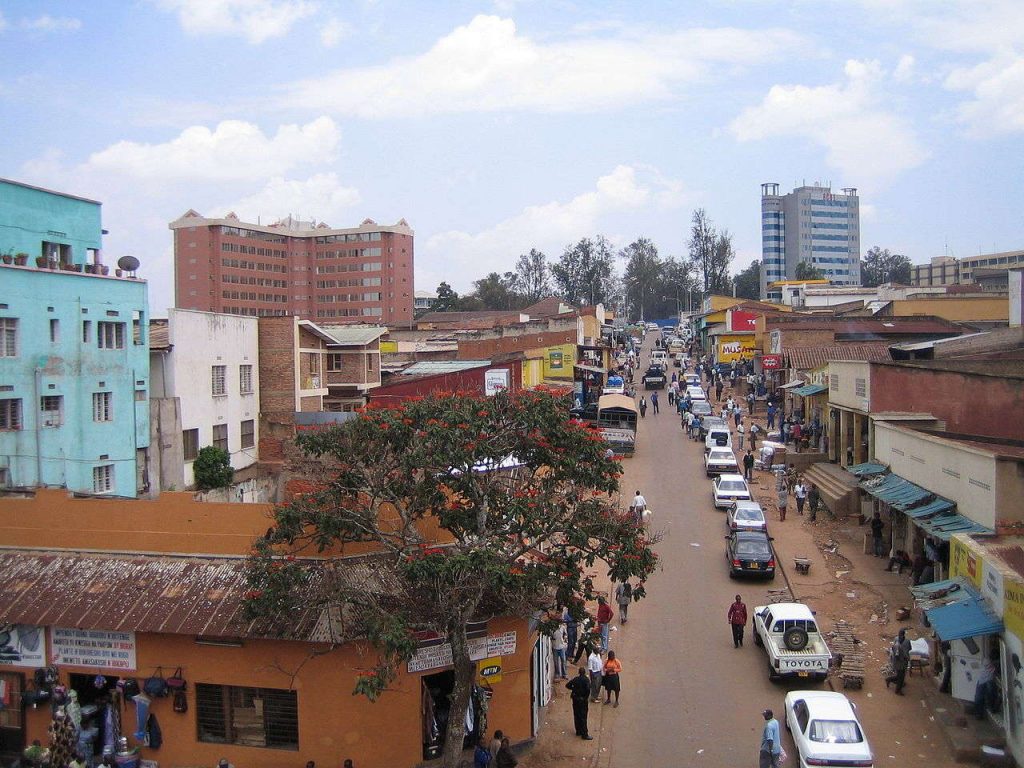Nairobi, Kenya (ViaNews) - Rwanda, a small country of about 12 million people that is located in East Africa has risen from the depths of turbulent times forever embedded in history to be a hub of buzzing business, visionary leadership and insatiable quest for progress.
The foundation of the current state of affairs has been built on the ashes of one of the most difficult conflict periods in African history. The genocide of 1994 brought out a dark side of ethnic segregation and atrocities committed to fellow countrymen as a result. It is reported that between 500,000 to one million people lost their lives during that trying time for the nation.
Fast forward to 2017 and there is a great transformation to the country that has scaled new heights with each passing year since the turn of the 21st century. Part of the pillars of the change has been transformative leadership under the influence of long serving President Paul Kagame who is now in his third term as head of state.
Kagame, who received military training in Uganda where he grew up and became a senior military officer in Ugandan President Yoweri Museveni's army in the 1980’s, was at the helm of the Rwandan Patriotic Front. This was a movement with its sets of troops that stormed the Rwandan capital of Kigali and took power to effectively end the 100-day genocide.
He became the de facto leader of Rwanda since 1994 where he also held the post of Minister of Defence. He won the 2003 elections with over 90% of the electorate choosing him. Seven years later, he was re-elected as president where he got 95% of the vote. Facing a final term, he led a referendum that changed the constitution in 2015 which essentially granted him the leeway for a possible three more terms in office.
More recently in August, he won the presidential election, this time garnering over 98% of the vote. His vision for the future of Rwanda entails people having a sense of ownership, responsibility, and problem-solving mechanisms.
“Africa has no civilisation problems but only assets. It is important for Rwanda and our fellow Africans to feel reassured that a tax on our character only makes us stronger provided we respond with clarity and condition. There is no single model for nation building. At the root of any success are the good choices built on a mindset,” he said during a live broadcast at his inauguration.
Economic progress
Under Kagame’s tenure, Rwanda’s economy has improved and figures from the World Bank show a steady rise. There has been an average growth of 8% in the GDP in the period 2001-2015. Moreover, the government has gradually reduced the rates of poverty. 57% of the population lived below the poverty line in 2005 which dropped to 45% five years later. Over 70% of the Rwandan working population relies on agriculture for their livelihood and this fiscal year’s national budget of about $ 2.6 billion has been geared towards its goal of reducing external donor support which stands at 30-40% of the government revenue.
Kigali has been a benchmark for other major cities in Eastern Africa. The city is one of the cleanest following the bold decision by the government to ban plastic bags in 2008 and the concept is being implemented in neighbouring Kenya. The City Council of Kigali has also implemented major reforms in the transport sector to decongest the central business district area.
Women and youth in leadership
Rwanda has been hailed as the top country for promoting the youth and women in leadership. In the previous election, women made up 64% of the total Members of Parliament, the highest in the world. Kagame has over the years championed for the empowerment of women and the youth who he sees as an integral part of nation building.
“Empowering women and ensuring gender equality ultimately enriches communities and entire nations. Both historically, during our liberation struggle and even more recently, in reconstructing our country, women have contributed greatly and have been at the forefront of political, economic and reconciliation initiatives,” he told New Times newspaper earlier this year.
[caption id="attachment_2295" align="aligncenter" width="640"]

The centre of Kigali, Rwanda. Photo by: Steve.[/caption]
Though still facing many challenges like poverty, Rwanda’s government spearheaded by Kagame has a plan of action under the slogan ‘Vision 2020’ in the quest to be a middle-income country by the year 2020. Judging by the overwhelming support for their leader, Rwandans have hopped onto that bandwagon on the backdrop of positive change as seen progressively since 2000.
 The centre of Kigali, Rwanda. Photo by: Steve.[/caption]
Though still facing many challenges like poverty, Rwanda’s government spearheaded by Kagame has a plan of action under the slogan ‘Vision 2020’ in the quest to be a middle-income country by the year 2020. Judging by the overwhelming support for their leader, Rwandans have hopped onto that bandwagon on the backdrop of positive change as seen progressively since 2000.
The centre of Kigali, Rwanda. Photo by: Steve.[/caption]
Though still facing many challenges like poverty, Rwanda’s government spearheaded by Kagame has a plan of action under the slogan ‘Vision 2020’ in the quest to be a middle-income country by the year 2020. Judging by the overwhelming support for their leader, Rwandans have hopped onto that bandwagon on the backdrop of positive change as seen progressively since 2000.
